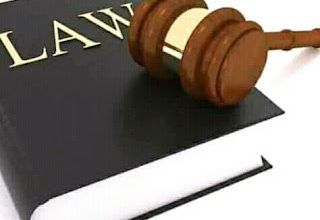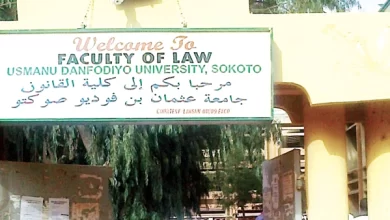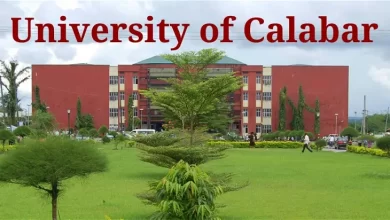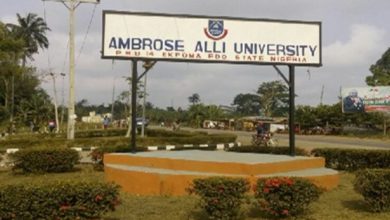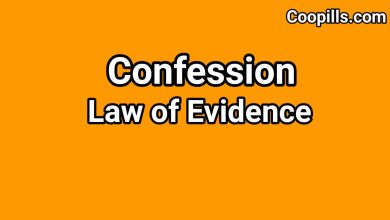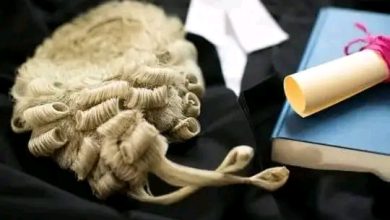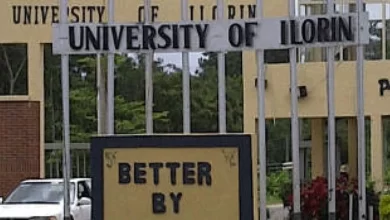corroboration
Table of Contents
In this article we shall be looking at Corroboration in law of evidence.
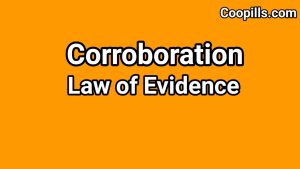
Corroboration
Corroboration is “a conformation of a witness’s evidence by independent testimony” Nwambe vs the state (1995) 3 SCNJ 77 at 97. According to S.200(1) of the evidence Act,”
“Except as provided in section 201-204 of this Act, no particular number of witnesses shall, in any case, be required for the proof of any fact”
A person can be convicted of any offence upon evidence on oath of a single adult witness. See Salish Babuga vs State (1996) SCNJ 217.
Exceptions To The Rule
1. Evidence of an Accomplice: S.198(1) E.A (2011)
2. Evidence of Co-accused S.198 E.A
3. Unsworn Evidence of Children: S.209(1) E.A
4.Treason and Treasonable offences S. 201 E.A
Exception In Civil Cases:- S 197 E.A
1. Breach of promise to marry
When did corroboration required?
Cases where corroboration is required as a matter of practice.
1. Sexual offences generally e.g Rape. See Sunmonu vs police (1957) W.R.N.L.R. 23
2. Sworn evidence of Children – See Akpan vs The state (1967) NMLR 185
3. Matrimonial Causes See Sowande vs Sowande (1960) L.L.R. 58
4. Evidence of Agent Provocateur:
5. Identification.
documentary Evidence
According to section 258 of the evidence Act; “Document”
include books, maps, plans, drawings, photographs, and also includes any matter expressed or described upon any substance by means, intended to be used or which may be
used for the purpose of recording that matter”
Conditions govern admissibility of documentary evidence
They are three main Conditions govern admissibility of documentary evidence which are:
1. Is the document pleaded?
2. Is it relevant to the enquiry being tried by the court?
3. Is it admissible in law?
Classification of documents
These are two types of documents under the Evidence Act:
1. Public Documents S. 102(2) and (b) E.A
2. Private documents S.103 E.A
Proof of Execution of Documents
i. Who is the author of the document?
ii. Is the document authentic?
Proof of Contents
Contents of document may be proved by either primary or secondary evidence. See S. 88 E.A
primary Evidence
Is the document itself. This is usually referred to as the Best Evidence Rule see S. 86(1) and S.86(2-4) E.A
If many duplicates or copies are made of the same document by the same process e.g typing with carbon paper each copy including the copy, is primary evidence of the document.
Secondary Evidence
Include certified copies and photocopies. See sec.87 (a- e) of evidence Act.
However a document must be proved by primary evidence.
There are exception under S.89 (i) (a-e) of evidence Act, Section 90 (2) (a) of evidence Act provides for the type of secondary evidence admissible. For secondary evidence to be admissible, the foundation must be laid under S.89 E.A
What is a Certified True Copy (CTC)?
For a document to be a certified true copy, it must meet the conditions under which are;
a. That the legal fees have been paid,
b. That it is a certified copy of the original document,
c. That the certificate has been subscribed and dated showing the official title of the officer, and;
d. Sealed cases in Nigeria which the official is entitled by law to use seal or stamped with official stamp.
It is unnecessary to call the public officer who certified it to tender it. See the case of Anyakora vs Obiakor
Proper Custody and Public Documents
Proper custody is completely irrelevant.



